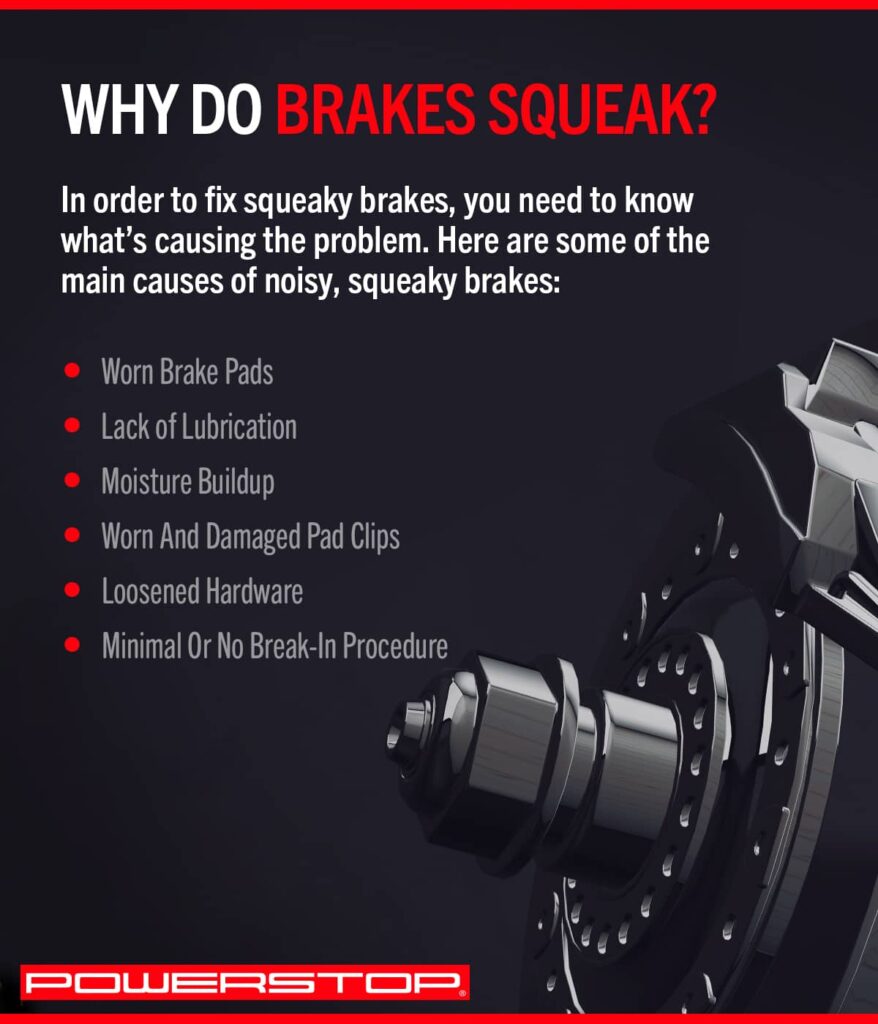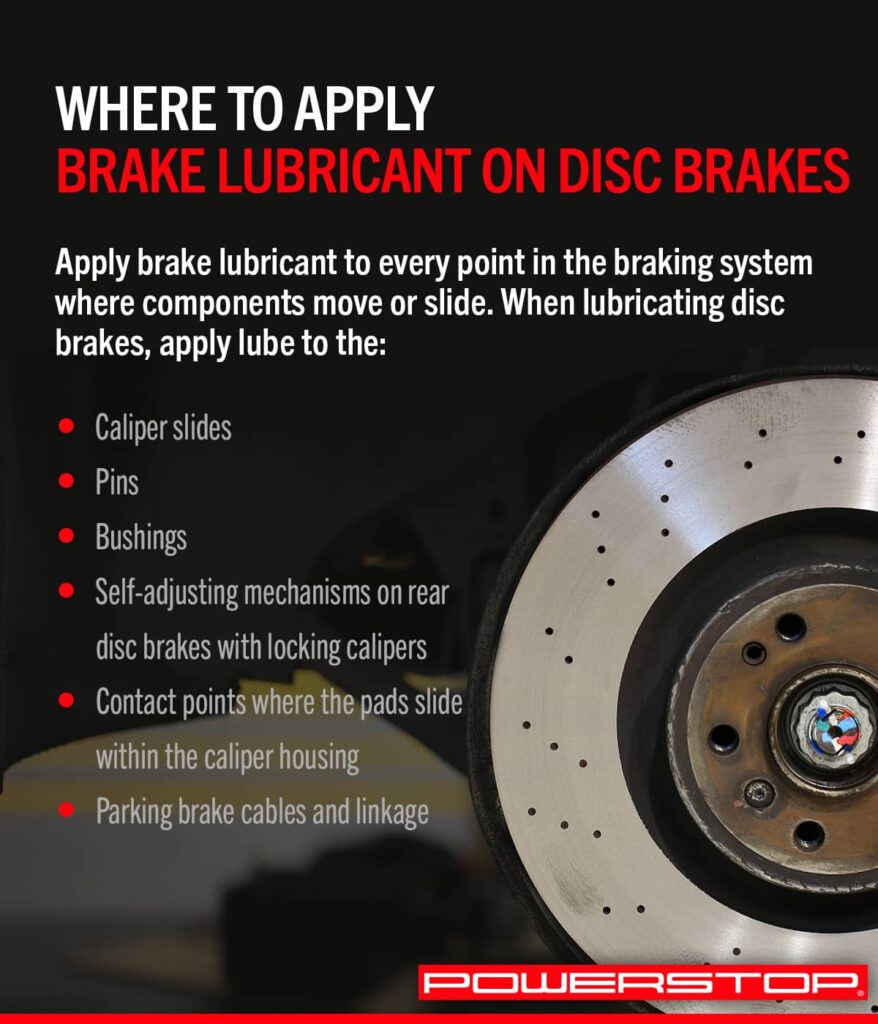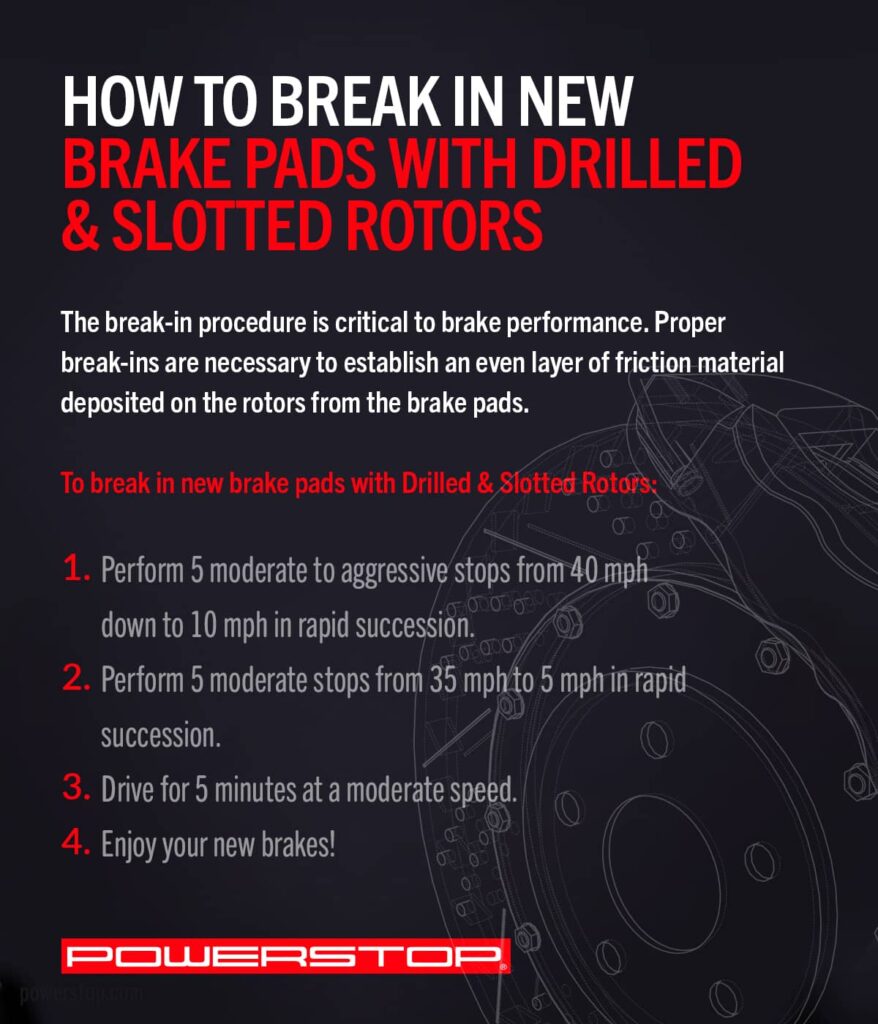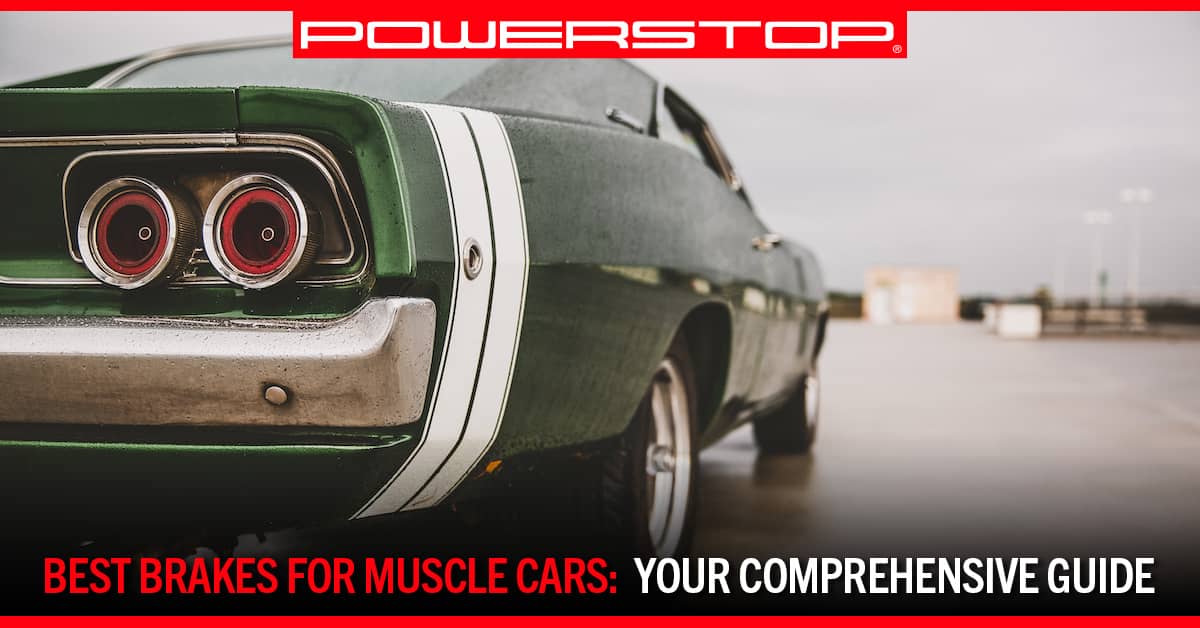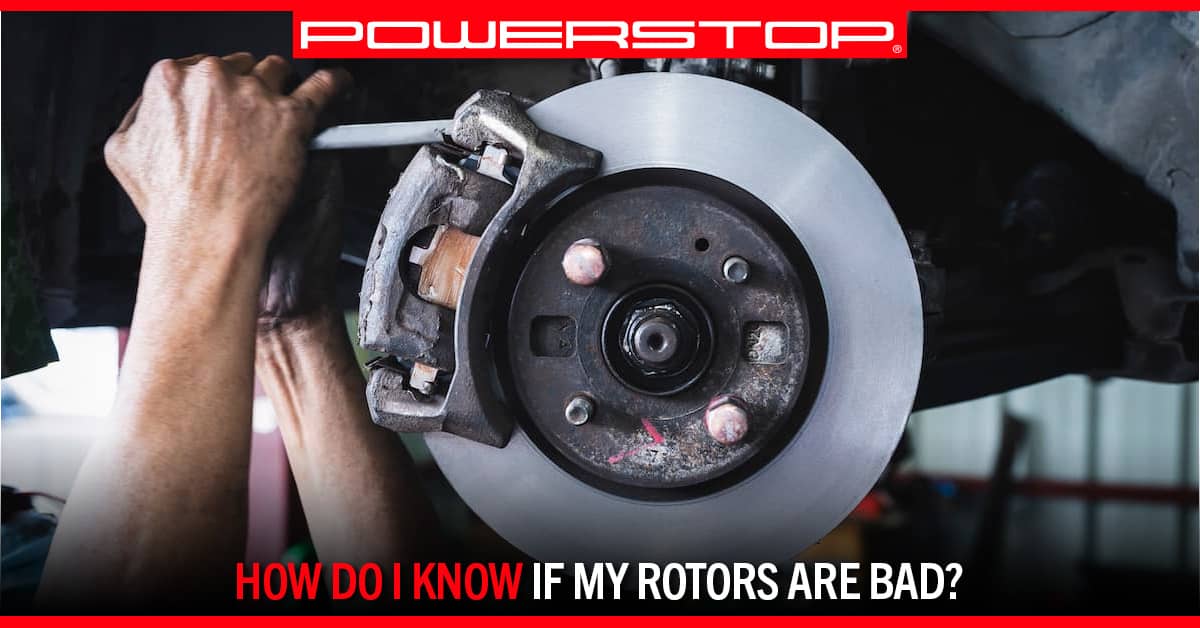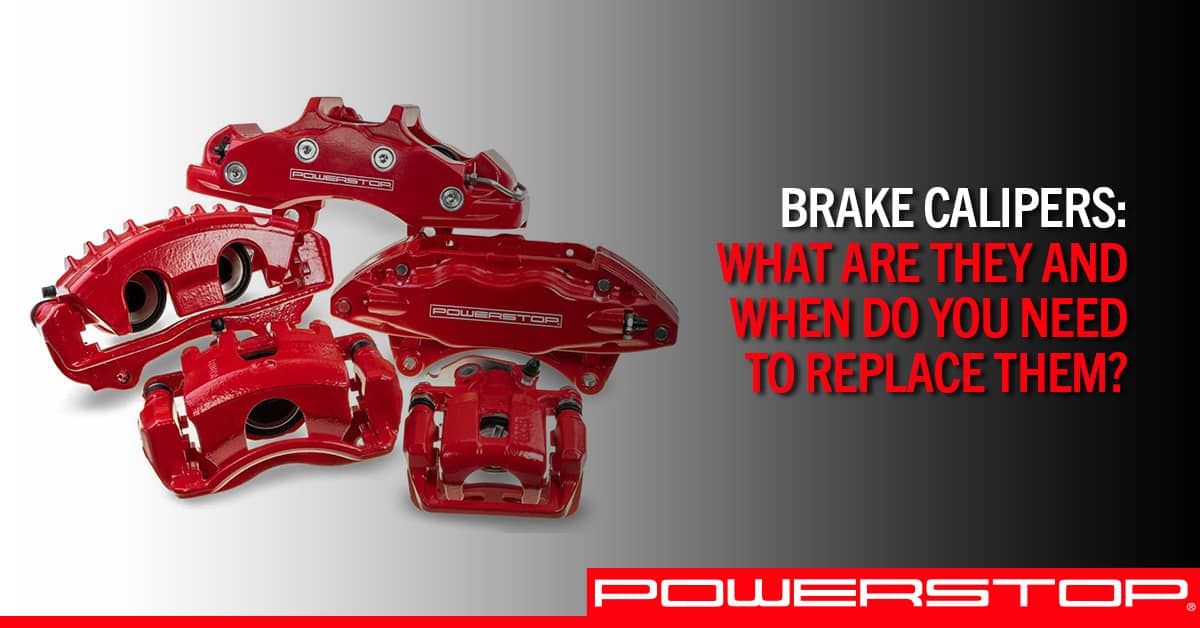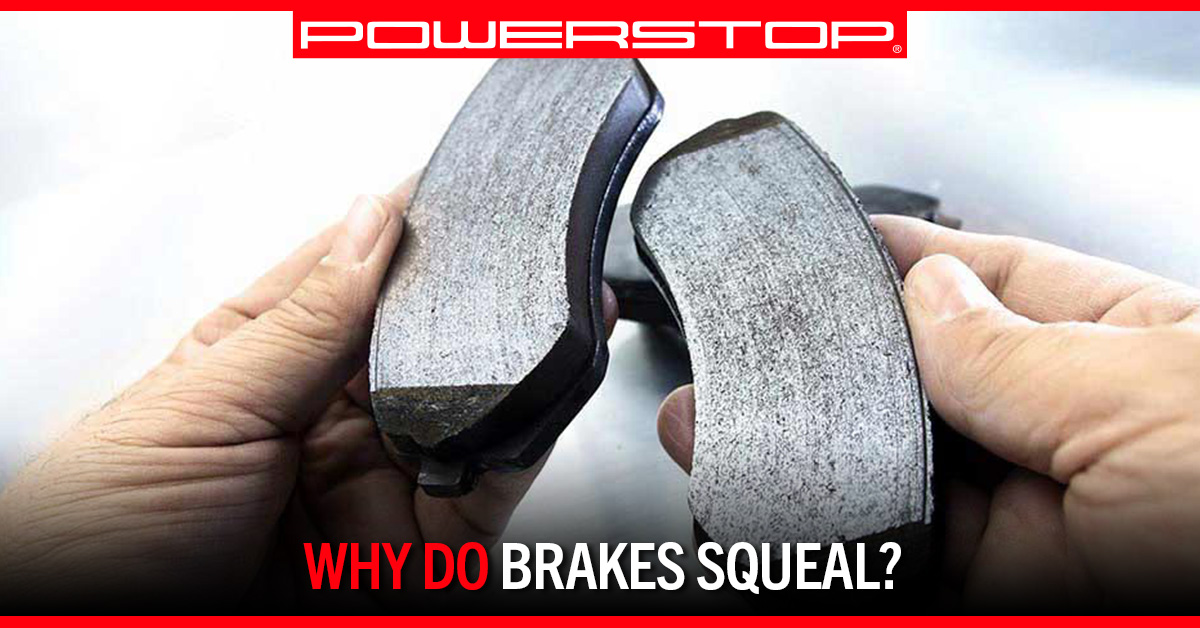
Brake squeal is more than just annoying. If you find yourself applying the brakes and hear a piercing noise like someone dragging their fingernails across a chalkboard, it can be an indication that something isn’t right. Not only can a squealing sound from the brakes be irritating, but it can also be dangerous.
Below, we discuss various causes of brake squeal and what you can do to correct the issue.
Why Do Brakes Squeal?
The first step toward fixing squealing brakes is determining the cause of the issue. Brakes can squeal for a number of reasons. Just because you hear an annoying sound, it doesn’t necessarily mean that you need to replace anything, but if you hear metal grinding on metal, you should have your brakes checked by a technician.
Below are some of the most common reasons why brakes squeal. Fortunately, most of these can be resolved or avoided.
Worn Brake Pads
Some brake pads come with mechanical-wear indicators designed to produce an auditory signal when it’s time for them to be changed. When the pads wear down to the point where they have about ⅛” – ¼” of remaining material, an indicator makes contact with the brake rotor, resulting in a loud squeal whenever the brakes are engaged. When this happens, the pads need to be replaced.
Damaged Pad Clips
Pad clips are included with most purchases of brake pads. The clips secure the pads on the calipers and reduce the vibrations or movements of the pads. However, when people change their brakes at home, they don’t always use the clips that came with their new pads.
Spring-loaded brake hardware can lose tension over time, which, in turn, can cause a squealing sound when you apply the brakes. Pad clips are designed to last only as long as the brake pads, so you need to make sure you replace them every time you change your brakes. PowerStop’s Brake Upgrade Kits come with all the hardware you need.
Insufficient Lubrication
Sometimes, squealing can result from a lack of adequate lubrication around the pins that attach the brake pad to the caliper cavity or insufficient lubrication on the backing plates of the brake pads. Other times, a squeal can be caused by brake pads rubbing rust off a rotor.
In either case, it’s a good idea to check the lubrication of your braking system.
Loose Hardware
Your braking system comprises many components, including hoses, clips, pins, calipers, pads, and rotors. When these parts get loose, they can vibrate and create squealing sounds.
Problem With the Break-In Procedure
You may hear noises if an insufficient break-in procedure was performed – or if no break-in procedure was performed at all – after the installation of new brakes. PowerStop brake pads come with break-in procedure directions on the box.
Suggestions for Brake Squeal Resolution
These simple suggestions are easy for anyone at home with basic DIY skills.
Lubricate the Brakes (Carefully)
Apply lubricant to the brake pad’s edges that connect to the caliper. Then remove the slide pins that float the caliper between the rotor and the caliper and clean them. Apply a small amount of lubricant to the brake pad’s backing plates. When these parts are not properly lubricated, loud squealing can occur as a sign that the pins may have seized, which can cause the calipers to hang up, fail to release pressure, and prematurely wear down the brake pads.
Learn more and see our video on how to lubricate brakes here.
*Note: Never apply lube to the rotor or the friction side of the pad where it contacts the rotor. This will damage your brakes and create a dangerous situation while driving.
Maintaining adequate lubrication on certain parts of your braking system is essential to proper operation. However, improperly lubricated brakes can cause them to stop working entirely.
Repeat the Break-In Procedure
In order to ensure your braking system performs at its full capacity, it is important to break in your rotors, also known as “bedding-in” your rotors. If your rotors are not properly bedded, you will not achieve optimal braking performance.
In addition to aggravating noises, un-bedded rotors can acquire uneven deposits of brake pad material. When you engage the brakes, this material can cause the brake pedal to pulse, the vehicle to shake, and the steering wheel to vibrate.
Learn the break-in procedure for Drilled and Slotted rotors here.
Learn the break-in procedure for Evolution Coated Rotors here.
Learn the break-in procedure for Track Day brakes here.
Check Hardware Before and After the Break-in Procedure
When bedding in new brakes, it’s important to pay close attention to your brake system’s hardware both before and after the bedding procedure. Check to ensure all components are secure and in good condition, and that the break-in procedure did not alter hardware position or damage any parts.
Frequently Asked Questions
Just because your brakes are squeaking, this doesn’t necessarily mean that your brakes need to be replaced. Oftentimes, brakes will squeak when there is moisture in the air or if a vehicle has been sitting after being washed or driven in the rain. In these situations, the squeaking should stop once the brakes are dry and any surface rust has been rubbed off by the brake pads.
In some cases, squeaking can also be a sign that it’s time for brake lubricant. Brake lubricant can stop squeaking in various brake components—though it should never be applied to the friction side of the brake pad or rotor. But, if driving your vehicle for a few minutes or applying brake lubricant does not fix the issue, then it may be time to replace your brakes.
It is okay to drive with squeaky brakes to a point. As we just mentioned, sometimes a few minutes of driving is all it takes to make squeaking go away. This could be the case if your brakes are wet (or were recently wet). However, if your brakes are squeaking because your brake pads are worn, then continuing to drive could be dangerous. In this scenario, it will be important to replace your worn brake pads as soon as possible.
Usually, when brake pads start squeaking, they still have some useful life left. So, if your brakes have just started squeaking, it is most likely safe to continue driving for a day or two until you can get your brake pads replaced (or find time to replace them yourself). With that said, it is always better to be safe than sorry, and you should not drive if you have any concerns that your brakes may not be working properly.
The answer to this question depends on several factors. First, you need to know why your brakes are squeaking. Once you diagnose the issue, then you can determine what needs to be done—and how long you have before continuing to drive potentially becomes dangerous.
You also need to know the specific brake components that are on your vehicle. Different companies design and manufacture their products differently, and some brakes are simply squeakier than others. So, with some brakes, squeaking could be a sign that you need a brake pad replacement, while this might not necessarily be the case with others. If you aren’t sure whether your brakes’ squeaking is an issue, you should have your vehicle’s braking system checked by a professional.
Squeaking brakes can be caused by a variety of issues. One of the most common issues is worn brake pads. The friction surface of a brake pad is manufactured with a compound that wears down over time as a result of being squeezed against the brake rotor. Once a brake pad begins to become too worn, it can begin to squeak.
Brake squeak can also be caused by inadequate lubrication. Several components of vehicles’ braking systems require lubrication to function properly. Vehicles come from the factory with their braking systems fully lubricated (or at least they should), but over time this factory lubricant can lose its effectiveness or wear away.
Brakes can squeak when they get hot because the pads and rotors have become “glazed.” Essentially, this means that they have both become so smooth due to excessive heat that they are no longer functioning optimally. This has the potential to be dangerous, as overheating can result in brake failure. If your brakes start squeaking because you are using your brakes more than usual (i.e., while descending a long road in the mountains), you may need to pull over and give your brakes time to cool down.
Brake lubricant can be used to fix some causes of squeaking, but not others. Specifically, lubricant can be used to fix squeaking in the following components: bushings, cables and linkages, caliper slides, pins, self-adjusting mechanisms on rear disc brakes with locking calipers, and contact points where pads slide within the caliper housing. Lubricant cannot be used on the friction surfaces of brake pads or brake rotors.
Have a Question? PowerStop Can Help
PowerStop is dedicated to delivering top-quality performance brakes for every vehicle on the road. If you have a question about any of our products, contact us today online or toll-free at (888) 863-4415. Our customer service team is available to answer your questions Monday through Friday from 8 a.m. to 5 p.m. (CST). Se habla español.
Back

